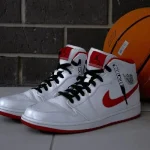Background and History of the Controversy
The controversy centers around Dr. Choong Whan Park, a former professor at the University of Southern California (USC). Initially accused of sexual harassment and misconduct by several former students, Park’s reputation as a respected professor and former dean of USC’s Marshall School of Business was severely tarnished. As more victims came forward, it became evident that this was not an isolated incident.
Key Players Involved in the Lawsuit
- Dr. Choong Whan Park: The accused marketing professor.
- Dr. Christina Woo Park: The former USC professor who filed the lawsuit. She alleges sexual harassment, assault, and discrimination by Dr. Park.
Allegations Against C.W. Park and USC
- Sexual Harassment: Dr. Christina Woo Park claims she was sexually harassed and assaulted by Dr. C.W. Park.
- Ethical Violations: The lawsuit accuses Park and USC of fraudulent practices, including falsifying research data and manipulating study results.
Reactions and Responses
- Initial Denials: Both Park and USC denied the charges and claimed no prior knowledge of the alleged actions.
- Victims’ Testimonies: The victims’ accounts painted a harrowing picture of the torment they endured.
- Institutional Changes: USC implemented reforms, enhancing reporting mechanisms and support options for survivors.
Impact on the University and Students
- Trust Erosion: Despite progress, trust between USC’s student body and faculty remains fragile.
- Wake-Up Call: The scandal serves as a wake-up call for universities to prioritize student well-being and address systemic flaws.
Lessons Learned and Changes Made by USC
- Transparency: USC learned the importance of transparency during crises.
- Ongoing Efforts: Continued efforts are needed to rebuild trust and prevent future incidents.
Legal Perspectives on the C.W. Park USC Lawsuit
1. Implications
- This federal law prohibits sex-based discrimination in educational institutions that receive federal funding. Dr. Christina Woo Park’s allegations fall squarely within Title IX’s purview.
- USC’s Obligations: USC’s Obligations: Under Title IX, USC has a legal duty to promptly investigate and address sexual harassment complaints. Failure to do so can result in severe consequences, including loss of federal funding.
2. Civil Liability
- Individual Liability: Dr. Choong Whan Park may face civil liability for his alleged actions. Victims can pursue civil lawsuits seeking damages for emotional distress, medical expenses, and other harms.
- Institutional Liability: USC, as an institution, could also be held liable if it failed to respond to complaints adequately or allowed a hostile environment to persist.
3. Criminal Implications
- Criminal Charges: Depending on the severity of the alleged misconduct, criminal charges (such as sexual assault or battery) could be filed against Dr. Park.
- Prosecutorial Discretion: Prosecutors will consider evidence, witness credibility, and other factors when deciding whether to pursue criminal charges.
4. Defamation and Reputation Damage
- Defamation Claims: Dr. Park may assert defamation claims against his accusers if he believes their statements harmed his reputation.
- Balancing Rights: Courts must balance the right to free speech (for victims) with the right to protect one’s reputation (for Dr. Park).
5. Settlement and Confidentiality Agreements
- Settlements: Parties may reach confidential settlements to avoid protracted legal battles. These agreements often involve financial compensation and nondisclosure clauses.
- Public Interest: Critics argue that confidentiality agreements can perpetuate a culture of secrecy and hinder accountability.
Remember to consult legal experts or review court documents for specific details.
Conclusion: What Can We Learn from This Controversy?
The C.W. Park USC Lawsuit underscores the need for vigilance, accountability, and empathy within academic institutions. It reminds us that even respected universities are not immune to scandal and must prioritize the safety and well-being of their students.





